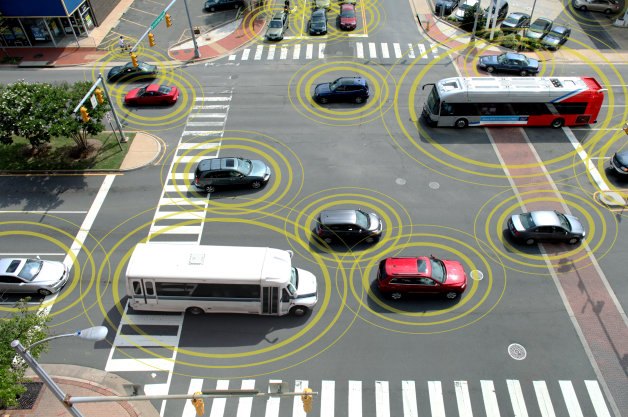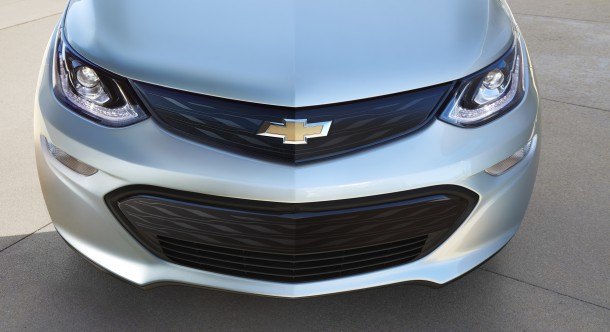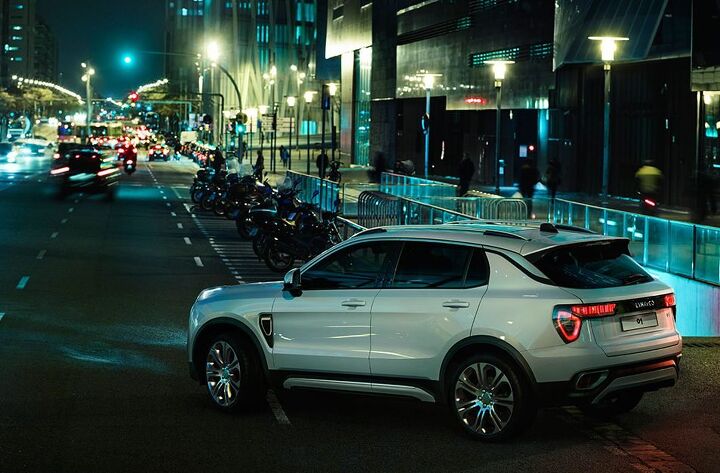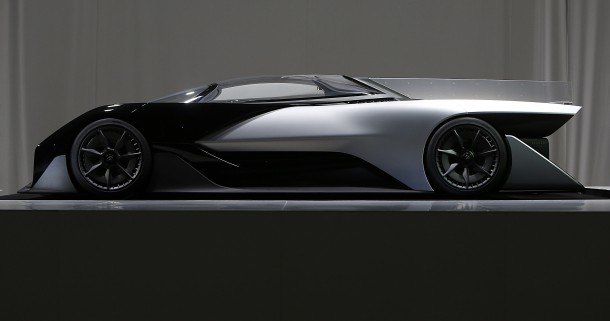#ConnectedCars
GM's 'Digital Marketplace' Under Fire Just a Day After It Was Announced
After announcing its new in-car marketplace earlier this week, General Motors is taking some heat from the National Safety Council. While we weren’t entirely sold on the shopping service either, our concerns revolved mainly around the automaker’s initial push into consumer data acquisition and targeted advertising.
We glossed over the safety angle, for the most part, mainly because we hadn’t yet played with the feature. However, the council’s worries focus squarely on the potential risk for distracted driving.
Upon marketplace’s release, GM tried to make clear that the service took those dangers into account, offering what it claims is a safer alternative to mobile phone use. But National Safety Council President Deborah Hersman believes the app will only create more accidents, hinting at the role cumbersome in-car technologies may have played in last year’s 5.6-percent rise in U.S. auto fatalities.
GM Adds Digital Marketplace to Its Vehicles for Onboard Purchasing
General Motors has announced it is the first automaker with its very own in-car commerce platform. We aren’t the least bit surprised.
In fact, we’ve been waiting for GM to announce something like this ever since it expressed an interest in using OnStar to deliver “personalized marketing offers” a little over a year ago. Since then, the manufacturer has also indicated plans to create an app store accessible from a vehicle’s infotainment system, as well as use driver data acquisition as a possible revenue source.
While GM isn’t the only company taking this path, it’s arguably the one that’s gotten the furthest. Our takeaway is that the services being rendered and developed are extremely clever ways for an automaker to rake in money, but will not be universally popular. This early example of GM’s changing business model ought to make the company a bundle while aggravating a certain percentage of consumers.
FCC Prepares Repeal On Net Neutrality: Autonomous Car Victory or Orwellian Nightmare?
You’ve no doubt heard about net neutrality over the last few years. But, in case you haven’t, net neutrality is the principle that forces Internet service providers to treat all data on the Internet equally. It forbids them from discriminating on subject matter or charging different fees based upon the user, site content, website, platform, application, or method of delivery. Essentially, it makes the internet into a tap where you pay one flat fee for access to all content.
That could soon change. On Tuesday, the chairman of the Federal Communications Commission announced plans to repeal the landmark neutrality order from 2015. FCC head Ajit Pai, a Republican appointed by President Donald Trump in January, said last year that he believed net neutrality’s “days were numbered.”
Pai has been criticized for being overly supportive of telecom companies. But a few automakers support his cause, as some of the FCC’s regulations have been at odds with autonomous car development.
General Motors to Build Two Bolt-based Crossovers, Considers the Data-mining Business
General Motors CEO Mary Barra outlined the company’s vision of the future at the Barclays Global Automotive Conference in New York on Wednesday. While the majority of her speech adhered to GM’s current mantra of “zero crashes, zero emissions, and zero congestion,” we also got a taste of what that thinking might yield on a shorter timeline.
In early October, GM expressed its intention to launch 20 new electric vehicles by 2023. However, we didn’t get any specific details on the matter. That changed this week. Barra claims the manufacturer will introduce three new electric models by 2020, with two of them being crossovers. The trio will share share basic components with the Chevrolet Bolt.
FCC Makes Room on the Airwaves for Autonomous Vehicles
Despite the Federal Communications Commission making a mess of net neutrality right now, it remains capable of serving corporate interests and the general public simultaneously. On Thursday, the FCC quintupled the allocation of the radio spectrum used for motor vehicle and aircraft radar systems to help avoid crashes.
While the majority of autonomous cars also use laser guidance and a complex network of cameras to navigate, radar remains an integral component. Presently, the 1 GHz of spectrum set aside in 1995 has been sufficient for self-driving vehicles using adaptive cruise control or automatic emergency braking. But we’re about to enter an era of connected cars that will be required to “speak” to one another, and those vehicles will need plenty of space to talk — 5 GHz of bandwidth, to be precise.
Lynk & CO Continues Promising 'Brutally Simple' Sales Strategy With No Haggling
Geely may be pushing the Lynk & Co brand as the most connected and tech-savvy in existence but its senior vice president Alain Visser believes its sales strategy should remain simple. With cars supposedly rolling out in Europe and North America for 2019, Lynk & Co is only planning to offer an extremely limited number of trim choices that rotate seasonally. It’s a fine strategy for an unknown element breaking into the marketplace but it does omit the ability to rake in the additional dough via optional extras. However, it also permits for lower production costs and a flat rate Lynk & Co claims buyers won’t need to bother negotiating.
How convenient for everyone.
News Round-up: Faraday 'Storyteller' Jumps to Kia, The War in the Air(waves), and 'Brexit' Vote Tomorrow
A company that still has yet to build its “game-changing” car will need to find another “storyteller.”
That, the UK will finally have an answer to The Clash, and Cadillac has a dogfight with Silicon Valley … after the break.
Chipmakers Think In-car Tech Will Be The Next IPhone
Maxed out of selling you a new phone every 15 minutes, chipmakers such as Nvidia and Intel are looking to break into the automotive business as the next new lucrative frontier for technology, Reuters reported.
Established automotive suppliers such as Infineon, Renesas and NXP may be figurative feet in the doors for other tech makers to exploit a growing car boom and tech cycle.
“A decade ago, autos was not sexy. Now it is,” Reinhard Ploss, chief executive of Infineon said, according to Reuters.
Michigan to Stay Ahead of Silicon Valley With "Mcity" for Autonomous & Connected Car R&D
The facility was mostly deserted by the time I got there deliberately late to avoid politicians’ speechifying. Between the very realistic — but empty — roadways with functional traffic lights, railway crossings, and even parking meters, on one hand, and the two city blocks of obviously faux buildings, theatrical scrims really, on the other, I felt that at any second, things might switch to black and white and Rod Serling would step out from behind one of the backdrops.
I wasn’t in the Twilight Zone, though. I was on a gentle hillside on the north side of Ann Arbor.





















Recent Comments